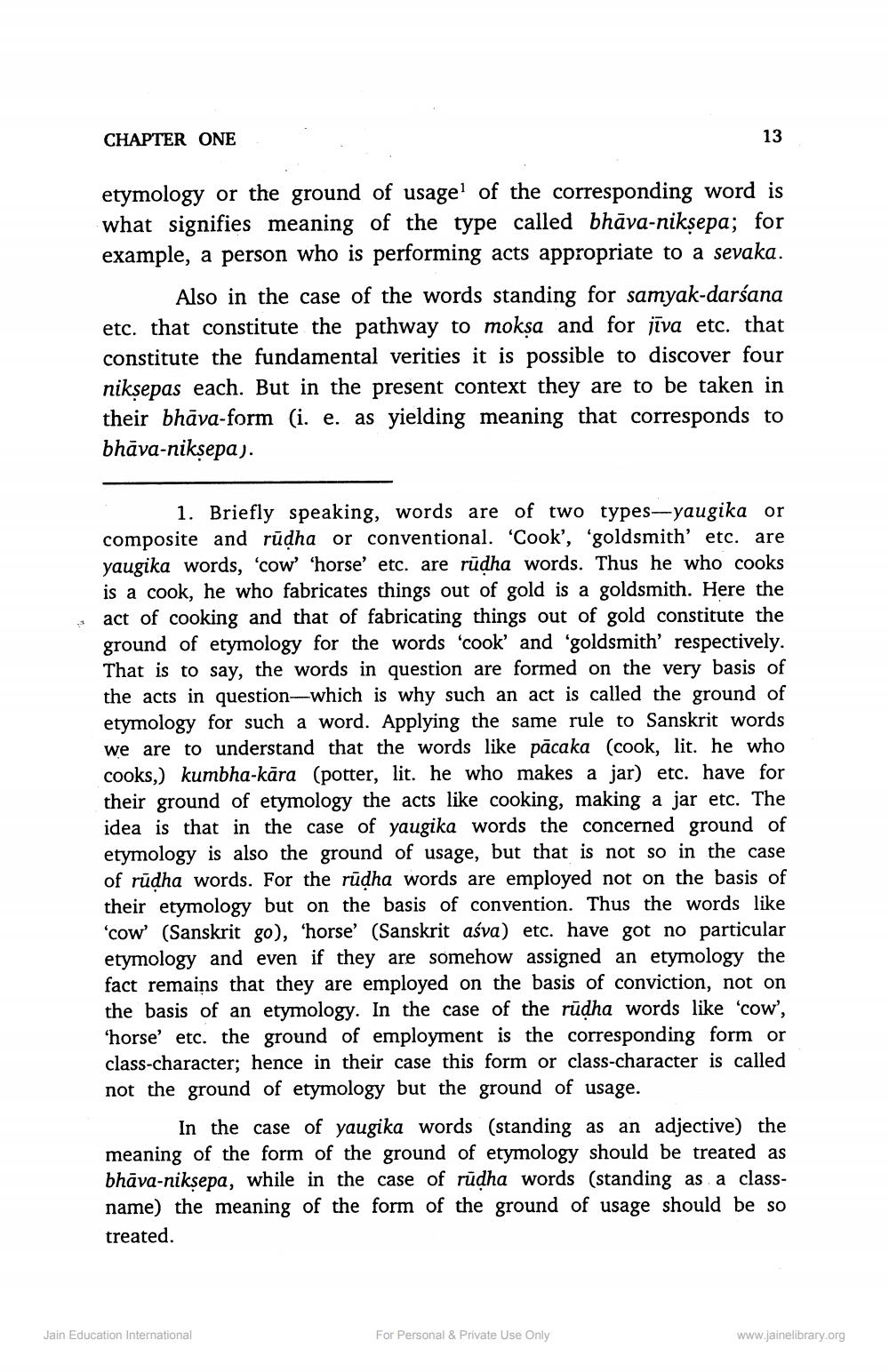________________
CHAPTER ONE
etymology or the ground of usage of the corresponding word is what signifies meaning of the type called bhāva-niksepa; for example, a person who is performing acts appropriate to a sevaka.
Also in the case of the words standing for samyak-darśana etc. that constitute the pathway to mokșa and for jīva etc. that constitute the fundamental verities it is possible to discover four niksepas each. But in the present context they are to be taken in their bhāva-form (i. e. as yielding meaning that corresponds to bhāva-niksepa).
1. Briefly speaking, words are of two types-yaugika or composite and rūdha or conventional. 'Cook', 'goldsmith' etc. are yaugika words, 'cow' 'horse' etc. are rūdha words. Thus he who cooks is a cook, he who fabricates things out of gold is a goldsmith. Here the act of cooking and that of fabricating things out of gold constitute the ground of etymology for the words 'cook' and 'goldsmith' respectively. That is to say, the words in question are formed on the very basis of the acts in question-which is why such an act is called the ground of etymology for such a word. Applying the same rule to Sanskrit words we are to understand that the words like pācaka (cook, lit. he who cooks,) kumbha-kāra (potter, lit. he who makes a jar) etc. have for their ground of etymology the acts like cooking, making a jar etc. The idea is that in the case of yaugika words the concerned ground of etymology is also the ground of usage, but that is not so in the case of rūdha words. For the rūdha words are employed not on the basis of their etymology but on the basis of convention. Thus the words like 'cow' (Sanskrit go), 'horse' (Sanskrit aśva) etc. have got no particular etymology and even if they are somehow assigned an etymology the fact remains that they are employed on the basis of conviction, not on the basis of an etymology. In the case of the rūdha words like 'cow', 'horse' etc. the ground of employment is the corresponding form or class-character; hence in their case this form or class-character is called not the ground of etymology but the ground of usage.
In the case of yaugika words (standing as an adjective) the meaning of the form of the ground of etymology should be treated as bhāva-niksepa, while in the case of rūdha words (standing as a classname) the meaning of the form of the ground of usage should be so treated.
Jain Education International
For Personal & Private Use Only
www.jainelibrary.org




